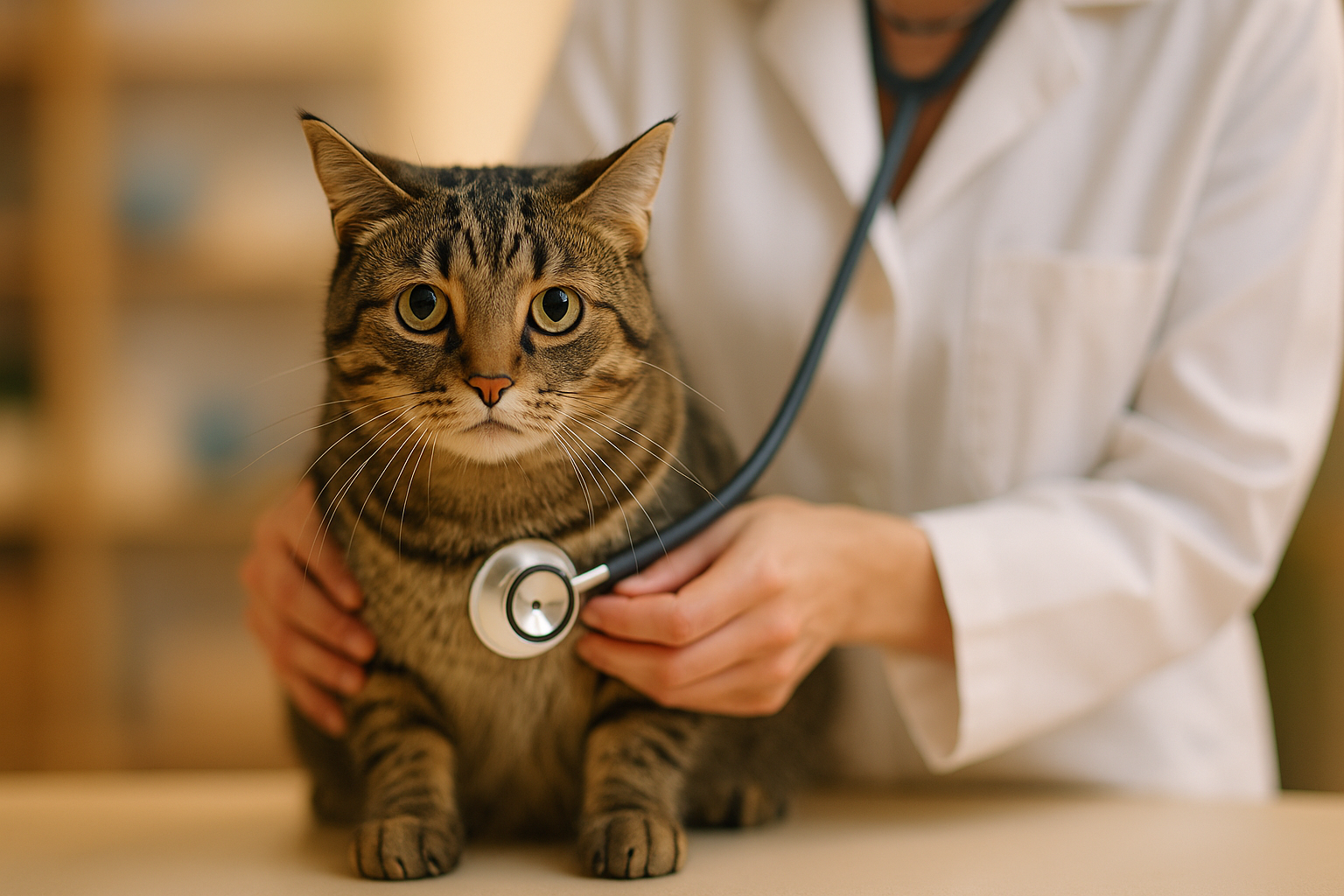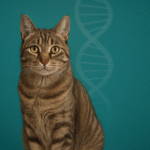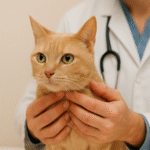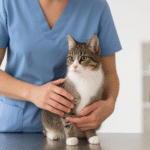Let me tell you something I wish I had known years ago: cats are masters of disguise. Especially when it comes to illness. My old tabby, Jasper, showed almost no signs of being sick—until one day he collapsed after chasing a fly across the room. Turns out, he had been living with heart disease for months, maybe even longer.
If you’re here because you suspect something might be off with your cat—or you’ve just gotten a scary diagnosis—take a deep breath. You’re in the right place.
In this guide, we’ll walk through what heart disease in cats really looks like, what causes it, what symptoms to watch for, and what you can do to help your cat live as long and comfortably as possible.
What Is Heart Disease in Cats?
At its simplest, cat heart disease means the heart isn’t working as well as it should. It might be caused by a problem with the heart muscle, heart valves, or even birth defects. Over time, poor heart function affects how blood and oxygen move through your cat’s body—and that can lead to a scary condition called heart failure.
The most common form in cats? Hypertrophic cardiomyopathy—a big name for a thickened heart muscle that makes it harder to pump blood.
And here’s the kicker: many cats with heart issues look totally fine… until they’re not.
Sneaky Signs: Symptoms of Heart Disease in Cats
Let’s be honest—cats don’t make it easy. They won’t limp or cry or act overly dramatic (unlike our canine friends). But you might notice:
- Lethargy or sleeping more than usual
- Labored or rapid breathing
- Coughing (though rare in cats, it can happen)
- Loss of appetite
- Weight loss despite eating
- Fainting or collapsing
- Difficulty moving hind legs (a possible blood clot)
These symptoms of heart disease in cats often come on slowly and can be mistaken for other things. If something just feels “off,” trust your gut and talk to your vet.
What Causes Heart Problems in Cats?
There’s no single cause, but a few common culprits include:
- Genetics (some breeds like Maine Coons, Ragdolls, and Burmese are more prone)
- Age-related wear and tear
- Thyroid disease
- Heart valve disease
- Taurine deficiency (though less common now due to better commercial diets)
And believe it or not, even dental disease can lead to heart problems—because bacteria from infected gums can enter the bloodstream and affect the heart valves. Another reason to keep up with those teeth cleanings!
Can Cats Live with Heart Disease?
Yes—and many do for quite a while.
But it depends on the type and how early it’s caught. Some cats live happily for months or even years with the right care. Others may decline more quickly.
So if you’re wondering, how long can a cat live with heart disease—the truth is, there’s no one-size-fits-all answer. Some cats do well for years with meds and lifestyle changes. Others may need more intensive care. The earlier you catch it, the better the outcome.
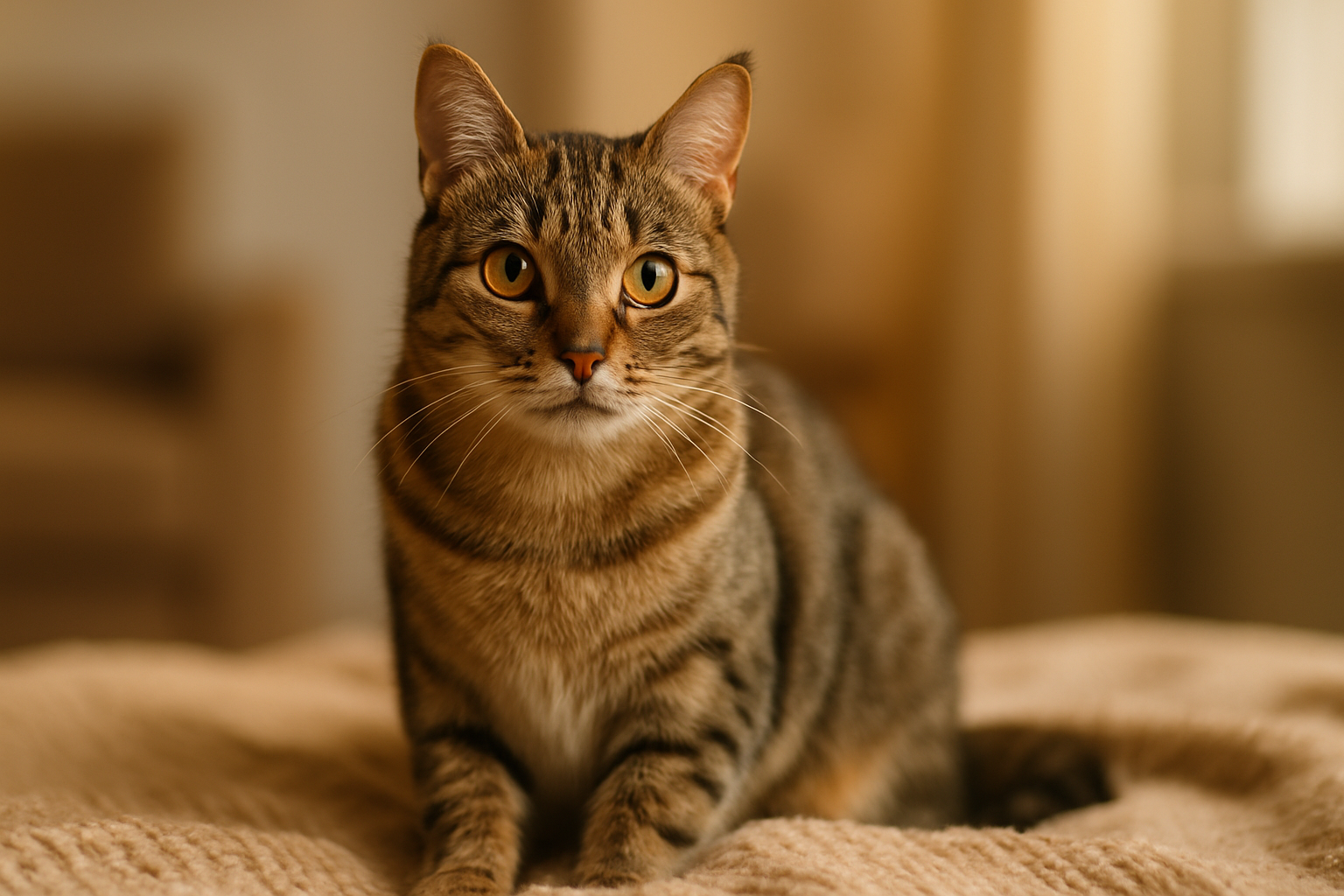
How Vets Diagnose Heart Disease
If your vet hears a heart murmur or suspects an issue, they might recommend:
- Chest X-rays to look for fluid or an enlarged heart
- Echocardiogram (ultrasound) to see how the heart is functioning
- Blood pressure checks
- ECG (electrocardiogram) to monitor electrical activity
- Blood tests to rule out thyroid or taurine issues
These tools help paint a full picture—and guide the best treatment plan.
Treatment Options: What You Can Do
While heart disease can’t usually be cured, there’s a lot you and your vet can do to manage it. Treatment might include:
- Medications to lower blood pressure or help the heart beat more efficiently
- Diuretics to reduce fluid in the lungs or belly
- Oxygen therapy in severe cases
- Nutritional support (next article will cover low sodium cat food for heart disease)
- Supplements, like taurine, if there’s a deficiency
And one of the most important things? Routine checkups. Catching small changes early can help your cat stay stable longer.
Living with a Cat Who Has Heart Disease
It’s not easy. I won’t sugarcoat it.
There will be days when you worry. Days when you feel helpless. But there will also be quiet afternoons filled with purring, sunbeams, and little nose kisses.
Cats with heart conditions still play, cuddle, and love deeply. What they need most is a calm, cozy environment and someone to watch for subtle changes.
If your cat starts breathing faster than usual—especially at rest—grab your phone and time their breaths. More than 30 breaths per minute while sleeping? Call your vet.
Frequently Asked Questions
Can heart disease in cats be cured?
Most types aren’t curable, but they can be managed. The goal is to improve quality of life and slow progression.
What’s the most common type of cat heart disease?
Hypertrophic cardiomyopathy is the most common. It causes the heart muscle to thicken and work less efficiently.
Do indoor cats get heart disease too?
Yes. Even cats who never go outside can develop heart conditions due to genetics or age.
Should I change my cat’s diet?
Your vet may recommend switching to a low sodium cat food for heart disease (which we’ll cover in the next article). Diet can play a big role in managing symptoms.
How do I know if it’s heart disease or something else?
You don’t—only your vet can tell for sure. Lung problems, anemia, and other illnesses can look very similar.
Final Thoughts: Don’t Wait for a Crisis
If your cat is acting different—even just a little off—pay attention. You know your feline better than anyone else. Catching heart disease in cats early can make all the difference.
And remember: you’re not alone. So many of us have walked this road. It’s hard, but it’s also filled with soft paws, slow blinks, and moments that will stay with you forever.
Got a question or story about your own cat’s heart health? Leave a comment below or share it with us—we’d love to hear from you.

